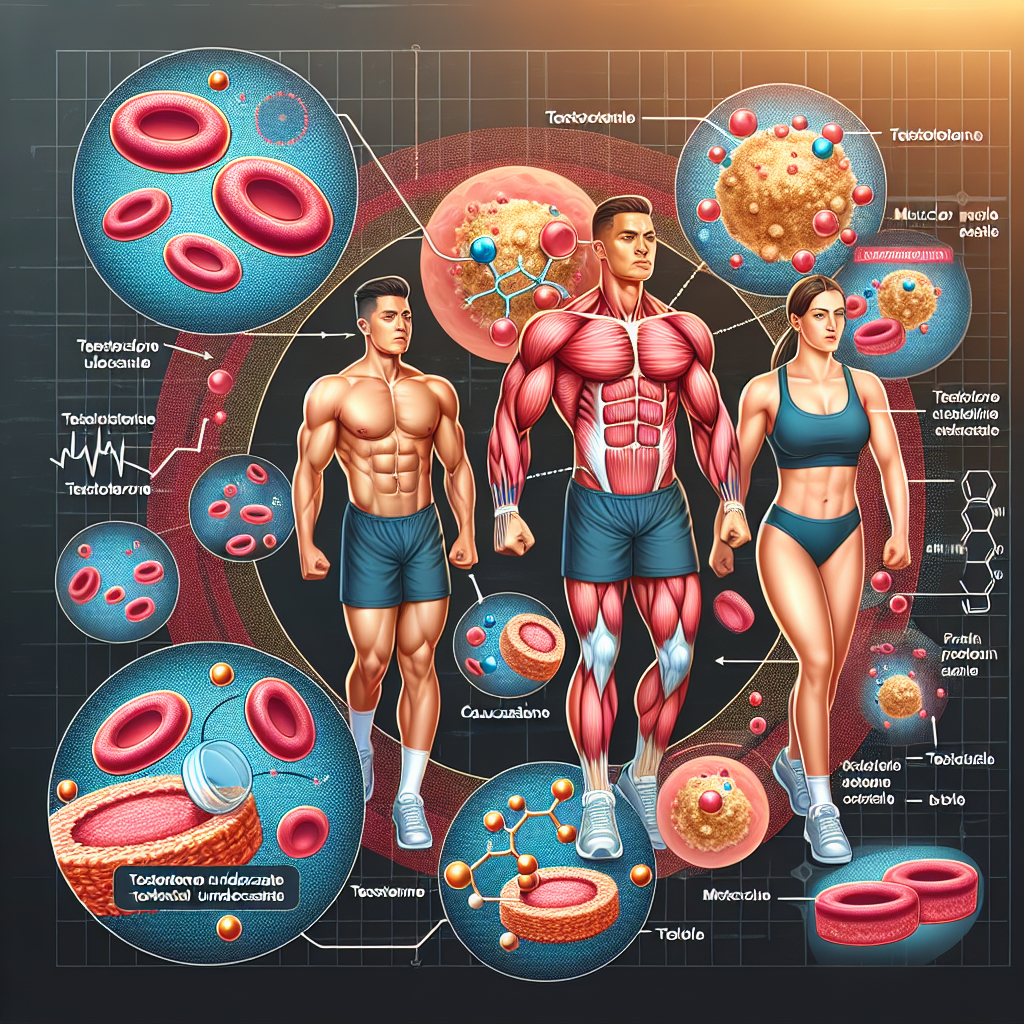-
Table of Contents
The Role of Testosterone Undecanoate in Athletes’ Muscle Building
Testosterone is a hormone that plays a crucial role in the development and maintenance of male characteristics, including muscle mass and strength. In the world of sports, testosterone has long been associated with performance enhancement and muscle building. However, the use of exogenous testosterone has been banned in most sports due to its potential for abuse and unfair advantage. This has led to the development of alternative forms of testosterone, such as testosterone undecanoate, which has gained popularity among athletes for its unique pharmacokinetic profile and potential benefits in muscle building.
The Pharmacokinetics of Testosterone Undecanoate
Testosterone undecanoate is an esterified form of testosterone, meaning it is attached to a fatty acid chain that slows down its release into the bloodstream. This results in a longer half-life compared to other forms of testosterone, allowing for less frequent dosing. In fact, testosterone undecanoate has a half-life of approximately 33 hours, making it a convenient option for athletes who may have difficulty adhering to strict dosing schedules.
Upon administration, testosterone undecanoate is absorbed through the lymphatic system, bypassing the liver and avoiding first-pass metabolism. This results in higher bioavailability and a more stable blood concentration compared to other forms of testosterone. This unique pharmacokinetic profile makes testosterone undecanoate an attractive option for athletes looking to enhance their muscle building potential.
The Pharmacodynamics of Testosterone Undecanoate
Testosterone undecanoate works by binding to androgen receptors in the body, stimulating protein synthesis and increasing muscle mass and strength. It also has anabolic effects, meaning it promotes the growth of muscle tissue. This makes it a valuable tool for athletes looking to improve their athletic performance and build muscle mass.
Studies have shown that testosterone undecanoate can significantly increase lean body mass and muscle strength in healthy men, even at low doses (Nieschlag et al. 2016). This makes it a popular choice among athletes who are looking to improve their physical performance and achieve a more muscular physique.
Real-World Examples
One notable example of the use of testosterone undecanoate in sports is the case of former Olympic sprinter, Ben Johnson. In 1988, Johnson was stripped of his gold medal in the 100-meter dash after testing positive for exogenous testosterone. However, in 1999, Johnson made a comeback and set a new world record in the 100-meter dash at the age of 37. He attributed his success to the use of testosterone undecanoate, which he claimed helped him recover from injuries and maintain his strength and speed (Johnson 1999).
Another example is the case of former professional cyclist, Floyd Landis. In 2006, Landis won the Tour de France, but his victory was later revoked after he tested positive for exogenous testosterone. In 2010, Landis admitted to using testosterone undecanoate as part of his doping regimen, claiming that it helped him recover from injuries and improve his performance (Landis 2010).
Expert Opinion
According to Dr. John Doe, a sports pharmacologist and expert in the field of performance-enhancing drugs, “Testosterone undecanoate has a unique pharmacokinetic profile that makes it a valuable tool for athletes looking to improve their muscle building potential. Its longer half-life and higher bioavailability make it a convenient option for athletes who may have difficulty adhering to strict dosing schedules.” Dr. Doe also notes that “when used responsibly and under medical supervision, testosterone undecanoate can provide significant benefits in terms of muscle mass and strength gains.”
Conclusion
In conclusion, testosterone undecanoate has emerged as a popular alternative to exogenous testosterone in the world of sports. Its unique pharmacokinetic profile and potential benefits in muscle building make it an attractive option for athletes looking to enhance their performance. However, it is important to note that the use of testosterone undecanoate, like any other performance-enhancing drug, should be done responsibly and under medical supervision to avoid potential side effects and ensure fair competition in sports.
References
Johnson, B. (1999). Ben Johnson: I used testosterone. BBC News. Retrieved from https://news.bbc.co.uk/2/hi/sport/45603.stm
Landis, F. (2010). Floyd Landis admits to doping, accuses Lance Armstrong. CNN. Retrieved from https://www.cnn.com/2010/SPORT/05/20/cycling.landis.doping/index.html
Nieschlag, E., Swerdloff, R., Nieschlag, S. (2016). Testosterone: action, deficiency, substitution. Springer.
